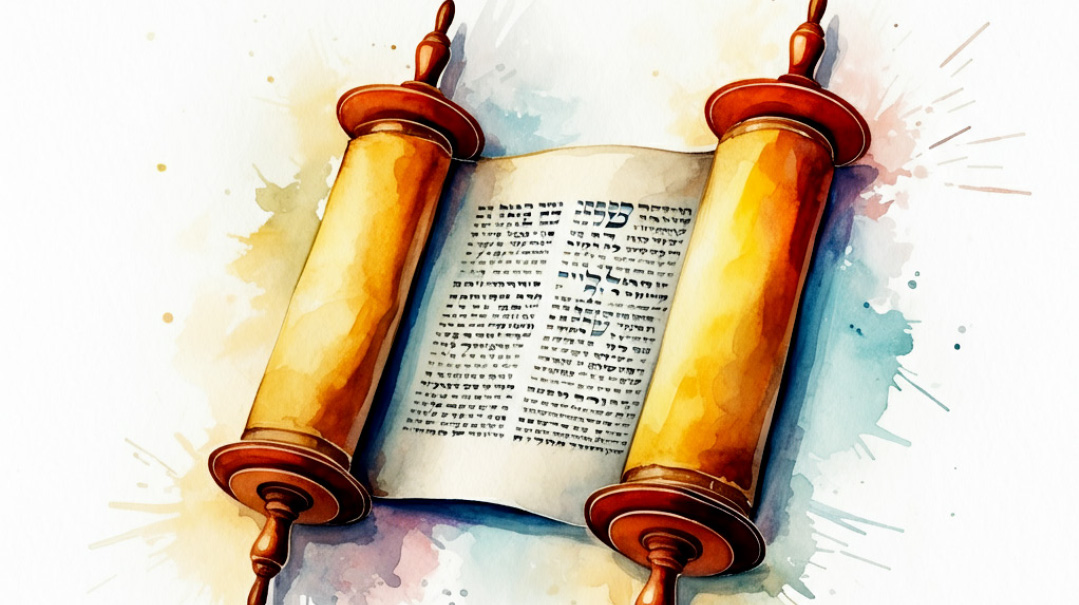Parshas Tzav-Pesach

Why am I, of all people, here in Israel, in my safe room?

“If he’s bringing it to give thanks… he must bring it with unleavened loaves… and with leavened bread together....” (Vayikra 7:12-13)
The traditional way to translate the first question of Mah Nishtanah is: “On all other nights we eat chometz or matzah….” But literally, the question actually states, “On all other nights, we eat chometz and matzah....” Yet rarely do we eat both chometz and matzah together.
The Binyan Ariel connects this with the Korban Todah. The Korban Todah is unique because it’s brought together with leavened and unleavened loaves. The Binyan Ariel explains that the first question in Mah Nishtanah is referring to this unique fact about Korban Todah and comparing it with Korban Pesach, an even more unique type of Korban Todah. On all other times we bring a Todah, we bring it with chometz and matzah, but on this night, we bring the Korban Pesach only with matzah. Why? (Rabbi Yissocher Frand)
W
hat’s a nice American girl like me doing in a bomb shelter? Over the past year and half, this thought often pops into my head as I’m dashing to my safe room, rounding up my kids as I go.
Seriously. How did I, a nice gal from Bal’more, end up in a war zone? I know that when I chose to live in Israel, no one promised me a bowl full of cherries (or falafel). I’ve lived through several wars, so I’m a veteran already. (Where are my veteran benefits?) Yet that incongruous thought still pops into my head as I strain my ears to hear if there was a missile impact, if we can leave the room yet or if there’s another missile on the way.
Rabbi Buchspan from Miami quotes Rav Samson Raphael Hirsch in saying that matzah represents nature in its crudest form, before human innovation. Flour and water. Can’t get more basic than that.
Conversely, chometz is man’s manipulation of the natural elements. Add yeast and other ingredients, and instead of thin matzah, you get geshmake challah.This parallels the four individuals required to bring Korban Todah: one who traveled a desert, who traveled the sea, the seriously ill who’re healed, and those freed from imprisonment. Those all are examples where a person’s hishtadlus was assisted by Hashem, i.e., a doctor helped heal the sick.
These past few weeks, Yemen has been making our bedtimes exciting. Sleep doesn’t come easily to many balabustas before Pesach, but after finally falling asleep, the Houthis enjoy waking us, as we scramble in our pajamas to the wail of the air raid siren.
My son Shloime hates the sirens, and I move swiftly into calm mommy mode, soothing, singing, joking, anything to normalize the situation, which unfortunately, at his young age, has become his new normal. But I’m still not sure why I, of all people, am here in Israel, in my safe room.
Korban Pesach is different. In this miracle, Hashem acted on His own. The Malach HaMaves was roaming Mitzrayim, and what were the Jews to do? They were commanded to do nothing! Hashem will take care of everything. That’s why the Korban Pesach is brought with only matzah, symbolizing the lack of human hishtadlus in Yetzias Mitzrayim.
Will Leil HaSeder bring more sirens? Will we dash from the table in our Yom Tov finery to huddle in the dark of the safe room?
Vehi She’amdah — in every generation they tried to annihilate us. And we’re still here. In peacetime, a person can fall into complacency, secure in his own efforts keeping him safe and prosperous. Yet there’s no atheist in a foxhole, and there’s no complacency in a bomb shelter. I can’t fall into the trap of planning each day as if I’m in charge of the outcome. Each day’s a gift that was presented to me, telling me that today Hashem is protecting me.
That’s why I’m here. I’m sitting here in this room with its fortified walls and sealed window, to understand that this isn’t what’s keeping me safe. Hashem wants me to realize that for every missile that’s sent, He’s guiding it away from me, keeping me from harm. I’m here because He wants me to know He’s here in the safe room together with me.
On this night we’ll only eat matzah, to teach us we don’t have to do anything, just be here with Him. That’s our safe food — for thought. Ff
(Originally featured in Family First, Issue 939)
Oops! We could not locate your form.


